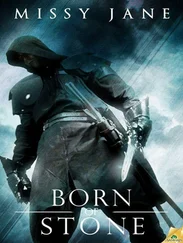This book is dedicated to the lost memory of my Great-Aunt
Mary Ellis “Jane” Clay,
to the beloved memory of my mother,
Bonnie Clay Watson Collins,
to her memories of my grandfather,
S. S. Clay,
and to my extraordinary in all ways wife,
Nell Hanley.
Thank you, love.
In the wombs of the mothers, unborn embryos were growing,
membranes and tissues folded and pleated themselves cleverly
around each other, exploring without sorrow, without hesitation, the
possibilities of topological space.
— LARS GUSTAFSSON, “GREATNESS STRIKES WHERE IT PLEASES”
She’d had, like anyone else, her love story.
— FLAUBERT, “A SIMPLE HEART”
You would not think someone so afflicted would or could be cheerful, not prone to melancholy or the miseries. Early on she acquired ways of dealing with her life, with life in general. And as she grew older it became evident that she feared almost nothing — perhaps only horses and something she couldn’t quite name, a strange presence of danger not quite or not really a part of the world.
She didn’t fear a fever of the kind that had taken brother William at the age of three, before she was born. To her mind such fate belonged to that child, not her.
She wasn’t afraid of snakes, not even the poisonous kind, for she believed they wouldn’t bite her if she simply left them alone. Mosquitoes, for some reason of their own, did not bite her, although she took no precautions against them.
She did not fear chickens, because she found them to be comically sage — in spite of what people said about stupid chickens. The same with pigs, although their frequent, abrupt, chaotic, or oddly orchestrated and deafening panic at first frightened her, until she saw the comical in that. The panic was sudden in its arrival and departure, both. Cows were so obviously a threat to no one, if you did not threaten a mother’s calf. The bull was safely penned in his separate small pasture.
She didn’t fear the coyotes that sang at night in the open fields, nor the panthers that sometimes screamed far off deep in the woods. She loved to kneel at the open window and listen to the coyotes sing and imagine what they were singing to each other, what their singing meant to them. She did not mind them tearing mice, rabbits, and squirrels to pieces, nor running down newborn fawns. Nor the panthers sometimes taking a newborn calf. Her odd fear of an unnamed beast, something we might call mythical, came from having thought she once heard one grumbling near the house at night, and she was terrified then.
She was not afraid of screeching owls in the night, nor of the possibility of coming upon wild hogs during her walks in the woods, nor packs of wild dogs that sometimes roamed the pastures and were to everyone more fearsome than the coyotes or panthers or bears, their having no fear of man. She was not afraid of rabid coons or foxes, of her father’s guns, being a ten-gauge shotgun and a Winchester rifle. Nor of the hatchet used to decapitate the chickens, nor the long knives used to butcher the hogs, nor the smaller knives used to skin and butcher the occasional deer, nor the saws used for sawing their bones. Nor the large black kettle, used to boil water for washing soiled clothes and also for making soap in the yard, that she was told to stay clear of when she was small. Nor was she afraid of hell, although the preachers on the circuit warned of it, but she was not afraid of eternal fire or demons and the devil himself. She could not properly conjure them in her mind without a comical air. Jane, who rarely even went to town as a child, could not imagine going to hell, her imagination being neither successfully cross-country nor subterranean.
She was not afraid of cyclones in the darkest bile-green-and-black skies during storms that cracked off the limbs of oaks and the tops of pines and made the tin roof of the house and gallery pop and groan and bend upward at the edges. Nor of the hail that pocked the tin like buckshot raining down. Nor of lightning that split trees their length and left smoldering charred skeletons rooted to the wet, scorched earth. She was not afraid of God, with his sly and untrustworthy balance of love and wrath, who was yet curious enough to make himself vulnerable and walk among humans just like herself in the beautiful, harrowing embodiment of Jesus.
She feared horses because when they yanked their heads skyward and rolled their eyes she imagined they knew better than her what there was to fear in the air, in the inescapable physical world. She did not fear mules, which her father explained were smarter than horses and predictable, and later she liked it when she learned that they had no lineage. When she was small she feared standing bodies of water because for some reason she thought they were bottomless, but her father cured her of that by taking her fishing at their pond and coaxing her to wade in, cool off, feel the muddy earth safely there beneath the surface. Still, she would never learn to swim.
Her mother was more of an enigma than a threat, tending to lash out but seeming more angry at something inside herself than at others. Jane learned to weather the harsh and dark words, no more than a passing foul breeze in a world of variable winds of variable intensities but ephemeral and of no real consequence in a life.
She did not like the vexation of her incontinence, and wished she would outgrow it, but eventually accepted it as part of who she was, no matter how unsavory. She determined that she would live like any other girl as best she could, and when she could no longer do that, she would adjust her life to its terms accordingly. So she did not fear her own strangeness, even though her awareness of it grew and evolved as she got older.
In time her gaunt, dark-haired, blue-eyed beauty would be altered and sharpened by age, a visible sign of her difference, her independence, and a silent message to all that her presence in the world was impenetrable beyond a point of her own determination.
She was born into that time and place, in the farmland cut from the pine and broadleaf woods of east-central Mississippi, 1915, when there was no possibility of doing anything to alleviate her condition, no medical procedure to correct it. It was something to be accepted, grim-faced, as they accepted crop failure, debt, poverty, the frequent deaths of infants and small children from fevers and other maladies.
Her mother was thirty-nine and had not intended to have another child. Five years earlier she’d lost what she thought would be her last and youngest, a boy named William, who contracted a fever and died. The next year an unplanned child, her second girl, died stillborn. On William’s stone were the words, How desolate our home / Bereft of him. The stone for the infant girl read simply, Chisolm Infant, with the identical dates of her birth and death engraved below.
For the first few months she was pregnant with the girl who would become Jane, she pretended that she was not. That it was a false pregnancy, simply her body fooling with her, playing an evil joke. This figment of a child in her womb would go away, disappear like some temporary derangement of the senses brought on by God or the devil for reasons she could not divine. But at four months she could feel it quickening, and by five months it had begun to move around quite a bit, to thrust and kick and stretch, so she could not pretend it was anything else. By seven months in she had begun to talk to it. I will try to do right by you , she said, if you promise that you will try to do right by me. Do not die before I do. Do not come out a defective child doomed to unhappiness or an early death .
Читать дальше












